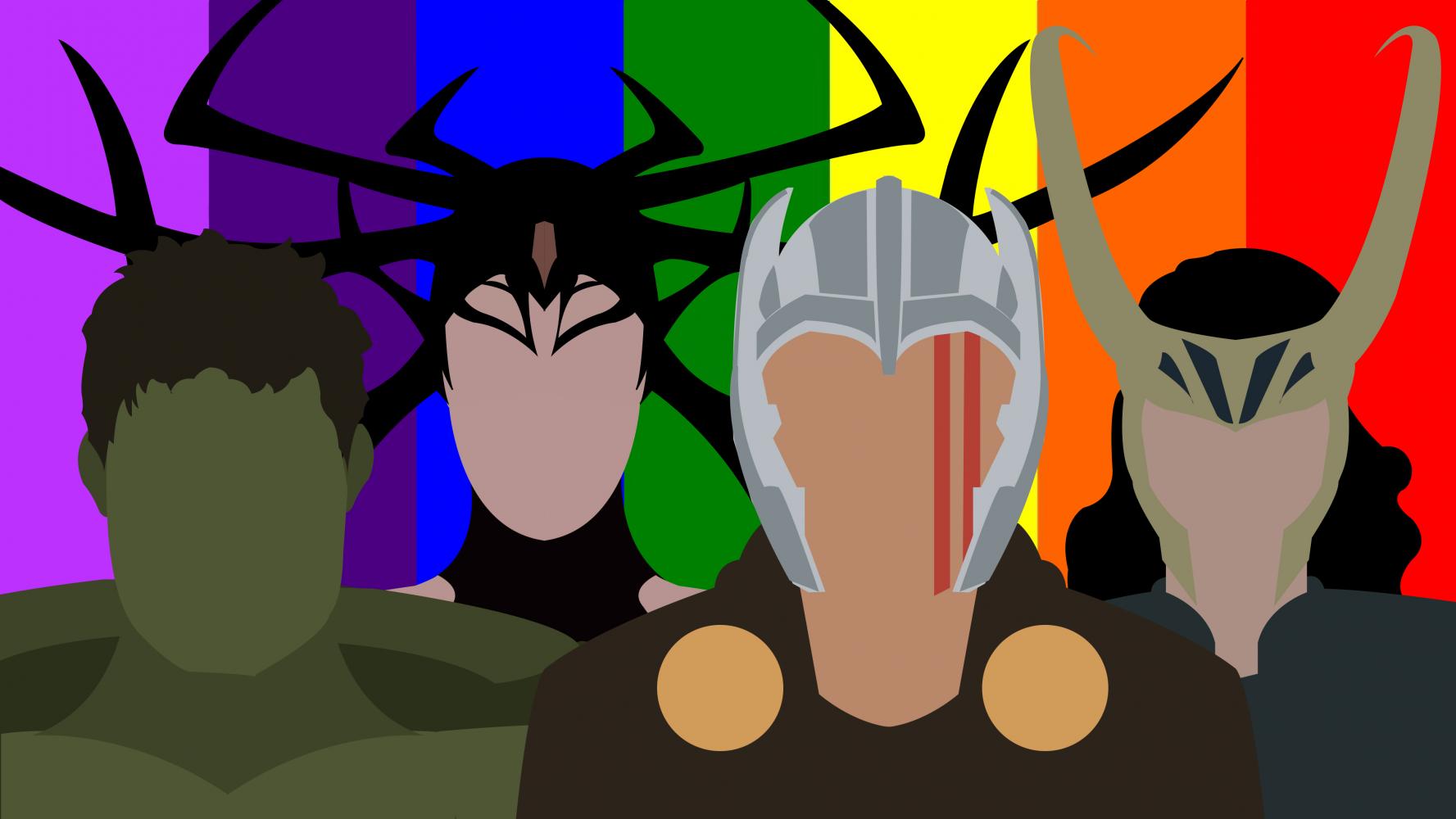There was a lot of hype surrounding "Thor: Ragnarok," the final film in Marvel’s "Thor" trilogy. "Ragnarok"’s marketing brought us a different film — directed by New Zealand Indie filmmaker Taika Waititi, the film places the traditional fantasy hero in an absolutely zany sci-fi comedy. While there are many reasons to go catch Thor before it officially leaves theaters, you’ve elected to read a review written by a fourth year Film major who — despite being a complete comic book nerd — will hold the film to a higher standard than other blockbuster superhero garbage.
When I went in to see "Thor," I thought that anyone with the cajones to make a movie that looked this off-the-wall must have had some sort of clear direction. But while "Thor: Ragnarok" was funny, I left the theater disappointed.
"Thor: Ragnarok" follows Thor and Loki after they are cast into deep space by their half-sister Hela (the Goddess of Death, but truly the Goddess of pointy sticks), who plans to rule over Asgard with an army of skeletons and a big black wolf. Thor finds his ally from The Avengers, Hulk, on planet Sakaar and teams up with warrior Valkyrie to reclaim Asgard.
I’m sorry to say that "Ragnarok"’s comedy was ultimately what did it in for me. The jokes were never situational. They were flat out punchlines which drew attention to the script, pulled me out of the movie, and derailed seventeen films' worth of character development. Despite being a comedy, the content is really very serious. Yet the protagonist acts like he doesn’t care.
Everything that happens in "Ragnarok" has catastrophic stakes for Thor and Loki including the death of major characters, the destruction of Thor’s hammer Mjolnir and Asgard itself. With the hammer gone, the prophecy of Ragnarok, and Loki having cast Odin from Asgard, the theme of family/world being torn apart was not subtle, but also touched upon very little. The best example of this is that Hela is Thor’s sister, a plot-point introduced as fast as it stops being relevant. Hela was campy, which wasn’t bad, but also never really interacts with Thor unless they’re fighting. She’s either murdering everyone, or gloating in front of Karl Urban like Galadriel on mushrooms.
The overall character arch of the third film was nothing new from the previous two Thor movies: your hammer isn’t what makes you Thor, Thor. You are Thor, Thor, and I am Odin, telling this to Thor, who I, Odin, named Thor. Wouldn’t it be awesome if the Marvel Comics version of Thor was more like the actual viking god? What sort of berserker awesomeness would that be? Unfortunately, Thor is reduced to what Tony Stark called him in The Avengers: "Shakespeare in the Park."
The overall reason I left the theater disappointed was that it truly felt like a comic book movie — meaning there was only a vague sense of beginning, middle and end. The scenes felt like a series of incoherent skits and featured cameos (you don't have to wait very long before meeting Dr. Strange) with no actual coherent plot driving the story. Many times "Ragnarok" flaunts Marvel easter eggs and uses the overall ambition of the cinematic universe to support the weaker links in the narrative chain, but then continues to mock itself and demean its own worth. "Thor: Ragnarok" was sort of like watching a live action Lego Batman film in the Thor universe. So yeah, I laughed, but I also felt hollow.
Whatever I dislike about Thor may in fact be the result of Hollywood executives behind the scenes shaping the film into something more ubiquitous. Despite this, Taika Waititi’s fingerprint is a clearly defined and welcomed attitude to the Marvel Universe. And the new characters — Grandmaster (portrayed by Jeff Goldblum), Hela (portrayed by Cate Blanchett), and Valkyrie (portrayed by Tessa Thompson) — were what brought the film to life. If all you needed from "Thor: Ragnarok" was Jeff Goldblum being weird, you’d have a field day. His performance is honestly the most satisfying thing in the film.
I also found myself laughing at scenes with Valkyrie more than I would have expected. Thompson’s clear dedication and research to the character, in collaboration with Waititi’s directing, were evident and effective. Of course there’s CGI side characters Korg and Miek (Korg being motion capture performed by Waititi himself); fortunately, these characters were kept out of lots of the marketing and thrived as wholly unexperienced material.
The only honest development beyond the previous "Thor" movies and Marvel films was Thor and Loki’s sibling relationship, which wasn’t too heavy-handed, efficiently funny, and handled relatively well in correlation to the larger Marvel storyline. "Thor: Ragnarok" doesn’t tonally fit in with Thor’s preceding films, but that’s not the problem. I love that "Ragnarok" challenges the format of Thor films and embraces being weird. I only question its execution.
Marvel’s ambition to merge several films and TV shows into one cinematic universe is awesome, but derails the potential each project has to be unique. What did I want from Thor? I think the problem is that I don’t know anymore, having abandoned any hope for a Marvel film to be unique.








